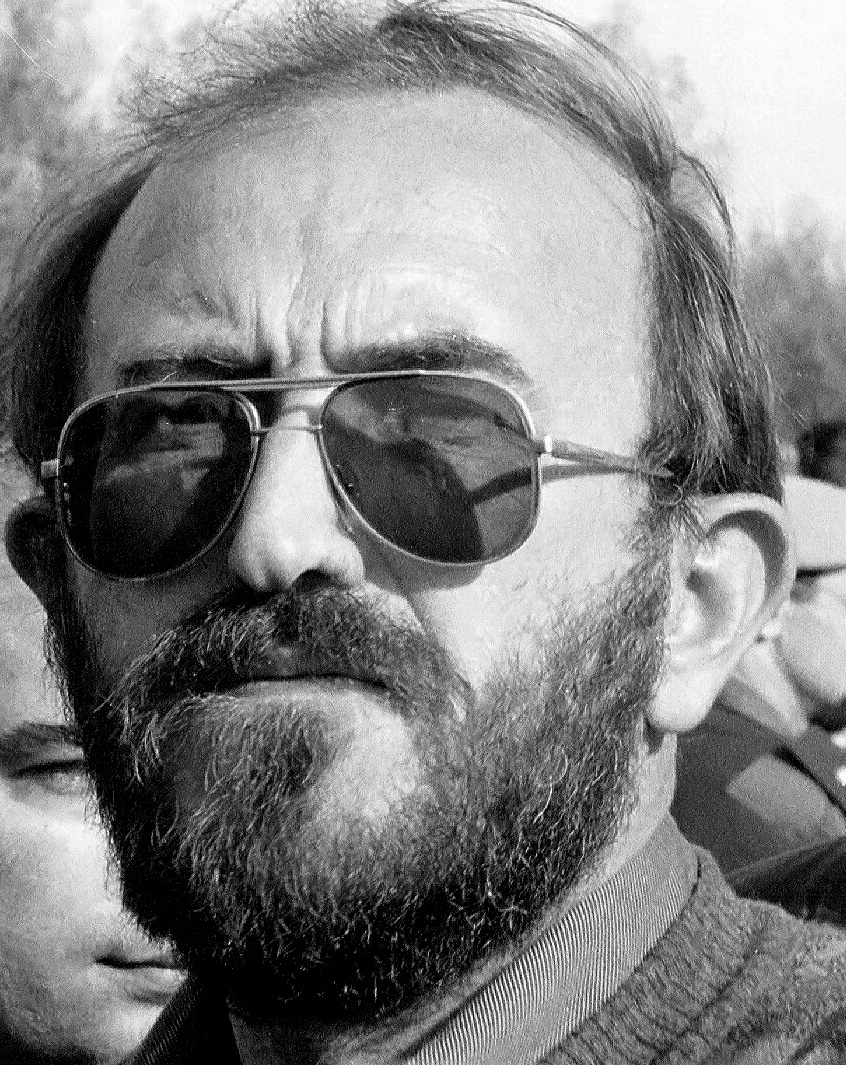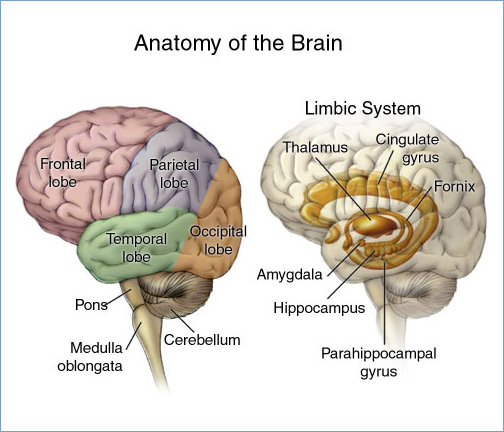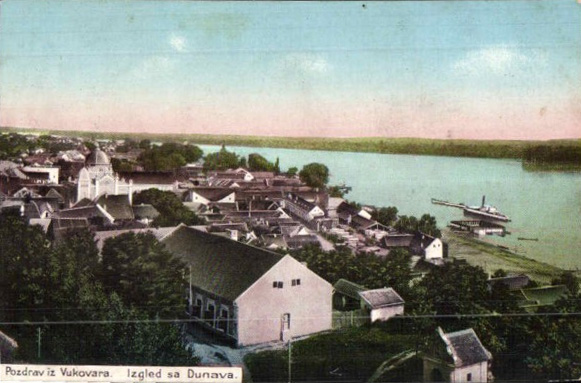|
Goran Hadžić
Goran Hadžić ( sr-cyrl, Горан Хаџић, ; 7 September 1958 – 12 July 2016) was a war criminal and a nationalist politician of the self-proclaimed Republic of Serbian Krajina, in office during the Croatian War of Independence. He was accused of crimes against humanity and of violation of the laws and customs of war by the International Criminal Tribunal for the former Yugoslavia. Hadžić was indicted on 14 counts of war crimes and crimes against humanity. The charges include criminal involvement in the "deportation or forcible transfer of tens of thousands of Croat and other non-Serb civilians" from Croatian territory between June 1991 and December 1993, including 20,000 from Vukovar; forced labour of detainees; the "extermination or murder of hundreds of Croat and other non-Serb civilians" in ten Croatian towns and villages including Vukovar; and the "torture, beatings and killings of detainees", including 264 victims seized from Vukovar Hospital. The Tribunal's last ... [...More Info...] [...Related Items...] OR: [Wikipedia] [Google] [Baidu] |
International Criminal Tribunal For The Former Yugoslavia
The International Criminal Tribunal for the former Yugoslavia (ICTY) was a body of the United Nations that was established to prosecute the war crimes that had been committed during the Yugoslav Wars and to try their perpetrators. The tribunal was an ''ad hoc'' court located in The Hague, Netherlands. It was established by Resolution 827 of the United Nations Security Council, which was passed on 25 May 1993. It had jurisdiction over four clusters of crimes committed on the territory of the former Yugoslavia since 1991: grave breaches of the Geneva Conventions, violations of the laws or customs of war, genocide, and crimes against humanity. The maximum sentence that it could impose was life imprisonment. Various countries signed agreements with the UN to carry out custodial sentences. A total of 161 persons were indicted; the final indictments were issued in December 2004, the last of which were confirmed and unsealed in the spring of 2005. The final fugitive, Goran Hadžić, ... [...More Info...] [...Related Items...] OR: [Wikipedia] [Google] [Baidu] |
Self-proclaimed
Self-proclaimed describes a legal title that is recognized by the declaring person but not necessarily by any recognized legal authority. It can be the status of a noble title or the status of a nation. The term is used informally for anyone declaring themselves to any informal title. Examples *Micronations such as Sealand are small, self-proclaimed entities that claim to be independent sovereign states but which are not acknowledged by any recognized sovereign state. *A self-proclaimed monarch such as Jean-Bédel Bokassa. * Self-styled order, a chivalric order with unrecognised claim of historical legacy Usage See also *Pretender *Self-declared states A number of polities have declared independence and sought diplomatic recognition from the international community as sovereign states, but have not been universally recognised as such. These entities often have ''de facto'' control of thei ... References Civil law (common law) {{Law-term-stub ... [...More Info...] [...Related Items...] OR: [Wikipedia] [Google] [Baidu] |
Slavonia
Slavonia (; hr, Slavonija) is, with Dalmatia, Croatia proper, and Istria, one of the four historical regions of Croatia. Taking up the east of the country, it roughly corresponds with five Croatian counties: Brod-Posavina, Osijek-Baranja, Požega-Slavonia, Virovitica-Podravina, and Vukovar-Syrmia, although the territory of the counties includes Baranya, and the definition of the western extent of Slavonia as a region varies. The counties cover or 22.2% of Croatia, inhabited by 806,192—18.8% of Croatia's population. The largest city in the region is Osijek, followed by Slavonski Brod and Vinkovci. Slavonia is located in the Pannonian Basin, largely bordered by the Danube, Drava, and Sava rivers. In the west, the region consists of the Sava and Drava valleys and the mountains surrounding the Požega Valley, and plains in the east. Slavonia enjoys a moderate continental climate with relatively low precipitation. After the fall of the Western Roman Empire, which rul ... [...More Info...] [...Related Items...] OR: [Wikipedia] [Google] [Baidu] |
Plitvice Lakes Incident
The Plitvice Lakes incident ( hr, Krvavi Uskrs na Plitvicama or ''Plitvički krvavi Uskrs'', both translating as "Plitvice Bloody Easter") was an armed clash at the beginning of the Croatian War of Independence. It was fought between Croatian police and armed forces from the Croatian Serb-established SAO Krajina at the Plitvice Lakes in Croatia, on 31 March 1991. The fighting followed the SAO Krajina's takeover of the Plitvice Lakes National Park and resulted in Croatia recapturing the area. The clash resulted in one killed on each side and contributed to the worsening ethnic tensions. The fighting prompted the Presidency of Yugoslavia to order the Yugoslav People's Army (''Jugoslovenska Narodna Armija'' – JNA) to step in and create a buffer zone between the opposing forces. The JNA arrived at the scene the following day and presented Croatia with an ultimatum requesting the police to withdraw. Even though the special police units which captured the Plitvice Lakes area did pull ... [...More Info...] [...Related Items...] OR: [Wikipedia] [Google] [Baidu] |
Serbian Democratic Forum
Serb Democratic Forum ( sh, Srpski demokratski forum, Српски демократски форум) is a non-governmental organization of the Serbs of Croatia, which in cooperation with national and international organizations and institutions, protects human rights, minority rights, develops and promotes inter-ethnic tolerance and understanding and tries to restore mutual trust and respect. Forum is a voluntary, non-governmental, non-profit and non-partisan organization. It is the first Serb non-governmental organization founded in Croatia in the aftermath of the disintegration of Yugoslavia. Forum has won numerous awards for his work in affirmation of human rights and civil society, most notably the Democracy and Civil Society Award in 1998, awarded by the U.S. and EU for promotion of democratic values. Image:Veljko Džakula.jpg, Veljko Džakula Serb Democratic Forum-Youth Forum * Serb Democratic Forum-Youth Forum (Serbo-Croatian) sr, Форум младих СДФ-а ... [...More Info...] [...Related Items...] OR: [Wikipedia] [Google] [Baidu] |
Serbian National Council Of Slavonia, Baranja And Western Syrmia
The Serbian Autonomous Oblast of Eastern Slavonia, Baranja and Western Syrmia ( sh-Latn-Cyrl, Srpska autonomna oblast Istočna Slavonija, Baranja i Zapadni Srem, Српска аутономна област Источна Славонија, Барања и Западни Срем) was a self-proclaimed Serbian Autonomous Oblast (SAO) in eastern Croatia, established during the Yugoslav Wars. It was one of three SAOs proclaimed on the territory of Croatia. The oblast included parts of the geographical regions of Slavonia, Baranja, and Syrmia along the Croatian section of the Danube river Podunavlje region. The entity was formed on June 25, 1991, the same day the Socialist Republic of Croatia decided to withdraw from Yugoslavia, following the Croatian independence referendum, 1991. In the first phase of the Croatian War of Independence, in 1992, the oblast joined the breakaway Republic of Serbian Krajina (RSK) as an exclave and the only part of the RSK directly bordering Serbi ... [...More Info...] [...Related Items...] OR: [Wikipedia] [Google] [Baidu] |
Knin
Knin (, sr, link=no, Книн, it, link=no, Tenin) is a city in the Šibenik-Knin County of Croatia, located in the Dalmatian hinterland near the source of the river Krka, an important traffic junction on the rail and road routes between Zagreb and Split. Knin rose to prominence twice in history, as the capital of both the medieval Kingdom of Croatia and, briefly, of the unrecognized self-proclaimed Republic of Serbian Krajina for the duration of Croatian War of Independence from 1991 to 1995. Etymology The name is likely derived from the Illyrian ''Ninia''. According to an alternative explanation, offered by Franz Miklosich and Petar Skok, the name - derived from a Slavic root ''*tьn-'' ("to cut", "to chop") - has a meaning of "cleared forest". The medieval names of Knin include hu, Tinin; it, Tenin; la, Tinum. The Latin name is still used as a titular episcopal see, the Diocese of Tinum. History Ancient The area consisting of today's Knin, or more specifically, ... [...More Info...] [...Related Items...] OR: [Wikipedia] [Google] [Baidu] |
Social Democratic Party Of Croatia
The Social Democratic Party of Croatia ( hr, Socijaldemokratska partija Hrvatske, SDP) is a social-democratic political party in Croatia. The SDP is anti-fascist, progressive, and strongly pro-European. The SDP was formed in 1990 as the successor of the League of Communists of Croatia, Croatian branch of the League of Communists of Yugoslavia, which had governed Croatia within the Yugoslav federation since World War II. The party first won the elections in 2000 and formed a coalition government headed by Ivica Račan. After losing the 2003 general election, the party remained in opposition for eight years. In the 2011 parliamentary election, SDP won 61 out of 151 seats in the Croatian Parliament, and managed to form the 12th Croatian Government under Zoran Milanović with its partners from the Kukuriku coalition. After SDP and its coalition partners failed to achieve an agreement on forming a new government following the 2015 general election, the party returned to th ... [...More Info...] [...Related Items...] OR: [Wikipedia] [Google] [Baidu] |
Warehouseman
A warehouseman can be someone who works in a warehouse, usually delivering goods for sale or storage, or, in older usage, someone who owns a warehouse and sells goods directly from it or from a shop fronting onto the warehouse (similar to a modern Cash and carry). An ''Italian warehouseman'' was someone who stocked goods from Italy such as pasta, olive oil, pickles, perfumes, fruits, paints and pigments (they were often known as Oil and Italian warehouseman or Oilman and Italian warehouseman to highlight the selling of oil products). A ''Manchester warehouseman'' was a wholesaler of linen and cloth made in the factories surrounding Manchester in the North-West of England. Kathryn Hughes, April 2006 In |
SR Croatia
The Socialist Republic of Croatia ( sh-Latn-Cyrl, separator=" / ", Socijalistička Republika Hrvatska, Социјалистичка Република Хрватска), or SR Croatia, was a constituent republic and federated state of the Socialist Federal Republic of Yugoslavia. By its constitution, modern-day Croatia is its direct continuation. Along with five other Yugoslav republics, it was formed during World War II and became a socialist republic after the war. It had four full official names during its 48-year existence ( see below). By territory and population, it was the second largest republic in Yugoslavia, after the Socialist Republic of Serbia. In 1990, the government dismantled the single-party system of government – installed by the League of Communists – and adopted a multi-party democracy. The newly elected government of Franjo Tuđman moved the republic towards independence, formally seceding from Yugoslavia in 1991 and thereby contributing to its disso ... [...More Info...] [...Related Items...] OR: [Wikipedia] [Google] [Baidu] |
Brain Cancer
A brain tumor occurs when abnormal cells form within the brain. There are two main types of tumors: malignant tumors and benign (non-cancerous) tumors. These can be further classified as primary tumors, which start within the brain, and secondary tumors, which most commonly have spread from tumors located outside the brain, known as brain metastasis tumors. All types of brain tumors may produce symptoms that vary depending on the size of the tumor and the part of the brain that is involved. Where symptoms exist, they may include headaches, seizures, problems with vision, vomiting and mental changes. Other symptoms may include difficulty walking, speaking, with sensations, or unconsciousness. The cause of most brain tumors is unknown. Uncommon risk factors include exposure to vinyl chloride, Epstein–Barr virus, ionizing radiation, and inherited syndromes such as neurofibromatosis, tuberous sclerosis, and von Hippel-Lindau Disease. Studies on mobile phone exposure have not s ... [...More Info...] [...Related Items...] OR: [Wikipedia] [Google] [Baidu] |
Vukovar
Vukovar () ( sr-Cyrl, Вуковар, hu, Vukovár, german: Wukowar) is a city in Croatia, in the eastern region of Slavonia. It contains Croatia's largest river port, located at the confluence of the Vuka and the Danube. Vukovar is the seat of Vukovar-Syrmia County and the second largest city in the county after Vinkovci. The city's registered population was 22,616 in the 2021 census, with a total of 23,536 in the municipality. Name The name ''Vukovar'' means 'town on the Vuka River' (''Vuko'' from the Vuka River, and ''vár'' from the Hungarian word for 'fortress'). The river was called "Ulca" in antiquity, probably from an Illyrian language. Its name might be related to the name of the river "Volga". In other languages, the city in German is known as ''Wukowar'' and in Hungarian as ''Vukovár'' or ''Valkóvár''. In the late 17th century, the medieval Croatian name Vukovo was supplanted by the Hungarian ''Vukovár''. In the Middle Ages, Vukovar was the seat of the great Vu ... [...More Info...] [...Related Items...] OR: [Wikipedia] [Google] [Baidu] |




